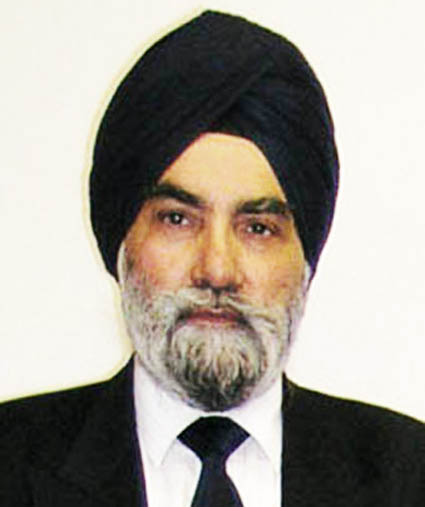Sri Akal Takh Sahib, the Organisational Aspect of Guru Granth and Global Guru Panth

The dire state of Sikh politics brings Panthic focus back to the basics of effective Sikh organisation capable of delivering Sikhi Miri-Piri (temporal-spiritual) objectives.
The distinction between the historical Miri-Piri Institution of Sri Akal Takht Sahib established by Guru Hargobind, and the administrative role of the incumbent office holders at the Takht, the jathedars, must be understood. The Institution is permanent. It cannot be ignored or abolished. The jathedars should be selected men or women of the highest calibre and should have the approval, confidence and respect of the entire Khalsa Panth. They are replaceable in the same way as heads of modern civil service.
We need to look at components of Sikh organisation from different angles. The Guru Granth Sahib is a philosophical text without dogma or ritual. From this philosophy there are religious, cultural, social, political and scientific derivatives. It is erroneous to describe Sikhi merely a religious doctrine and Sikhs merely as a religious people. (Sukhvinder Singh Thand, State Policy and Legislation Affecting Sikhs, SHRG, 2001.)
Sikhi is a movement or panth started by Guru Nanak Sahib. The aims and objectives of any movement can only be achieved through organisation (jathebandi). Realising this, the Sikhi movement was given an embryonic organisation by Guru Nanak Sahib at Kartarpur Sahib to be built upon by later Gurus. Today, the Sikh Reht Maryada makes it clear that the objectives of the corporate entity of the Panth can be achieved through organised collective action. Accordingly, the organisation supporting the Guru Granth and Guru Panth, as the spiritual and temporal (piri-miri) twin-track Sikhi movement, is provided through the Institution of Sri Akal Takht Sahib linked to network of Sangats worldwide.
The high office of the jathedar is onerous regarding global Sikh consultation and in seeking continual Gurbani guidance. Ideally, the jathedar should seek and implement the wishes of the Panth as guided by Guru Granth Sahib. He needs advisory panels of Gursikh scholars of the highest calibre in different fields. That is the organisational ideal the Panth should aim for, albeit, learning from the great Sikhi tradition while interpreting it to meet 21st century needs.
As discussed in this column last week, there have been continual failures in Sikh organisation over the decades and Panthic temporal objectives have not been delivered. Global Sikh focus needs to be brought back to the real source of Panthic power. Traditionally, that source is the Guru Granth-Guru Panth ideal society (temporal objective) interpreted through the Institution of Sri Akal Takht Sahib.
A related thought about Sikh Society and Organisation is from Gurmit Singh (advocate): Before Sikh Gurus the world knew of Monarchy, Aristocracy and Democracy in the realm of politics only, but when we find the 10th Guru bowing his head before and begging from the five Piaras, we come to realise that he is doing nothing else but democratising the office of prophetship, a thing so far unknown to the religions of the world. No other prophet had so far ever assigned an equal or a higher status to his own disciples during his life time. Thus the application of divine right theory was denied both to the king and the priest. (A Critique of Sikhism, 1967)
As discussed last week, for too long successive jathedars have became party to anti-Panthic decisions and compromises. Urgent organisational and decision-making reforms are needed to ensure independent operation of central Sikh institutions led by Sri Akal Takht Sahib.
Gurmukh Singh OBE
Principal Civil Servant retd (UK)